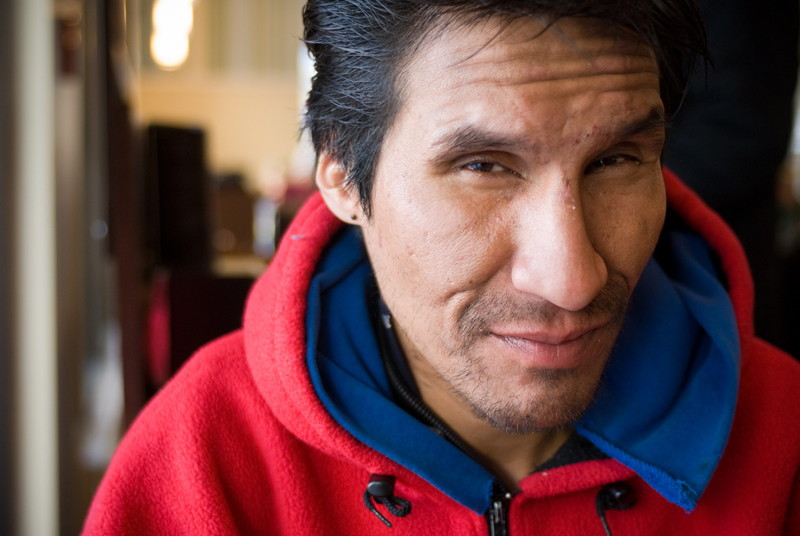Living on borrowed funds
City by-laws neglect panhandlers, say activists
A couple times a week, Larry Riehl puts on a warm scarf and mittens to brave the cold on the corner of a parking lot on Graham Avenue and Carleton Street. With no permanent address or job, Riehl is one of Winnipeg’s forgotten citizens, a panhandler.
Riehl relies on panhandling for the majority of his income, saying it makes enough money for his needs.
“I stop at $30,” he said. “That’s what I need to get food, wash my clothes and maybe go to a movie. I like movies.”
Riehl does his best to not get into any trouble with the police. He is well versed in Winnipeg’s Obstructive Solicitation By-law 7700/2000, informally known as the ‘aggressive panhandling’ by-law, which dictates what a person can or cannot do while panhandling.
Panhandling involves a person asking for money from passerby on the street.
The by-law prohibits asking people for money near a bank, when getting in and out of vehicles, on public transit or on restaurant patios.
“ The cops used to bother me and tell me to move. Now they leave me alone. People know me.
Larry Riehl, panhandler
It also prohibits repeatedly asking or obstructing traffic.
“The cops used to bother me and tell me to move. Now they leave me alone,” Riehl said. “People know me.”
Riehl said the police leave him alone because he abides by the by-law and is not aggressive.
“I know what the law is. I’m not beside a building or bank. Some (panhandlers) run up to people. You can’t do that.”
While Riehl is content obeying the law, some local agencies feel the by-law is uncompromising towards those in need.
“The issue is that they violate an individual’s right to ask for help,” said Wayne Helgason, executive director of the Social Planning Council of Winnipeg. “There are… incidences when people need help.”
Yet the current by-law, passed in 2000, actually grants more freedom for panhandlers than its predecessor, said Rick Joyal, manager at the Downtown Winnipeg Business Improvement Zone (BIZ).
It has already been modified to address Charter of Rights and Freedoms issues.
The first version of the by-law said a person could not panhandle after dark.
“You shouldn’t have something that restricts everything,” Joyal said.
A past police officer, Joyal said the police and the BIZ do not want to charge people outright.
“We’re not trying to wipe out panhandling,” he said. “The by-law is to address public concerns.”
To Helgason, public concerns also encompass the needs of panhandlers. He speculated of a situation where someone who has a job finds themselves stranded and without their wallet.
He questioned how successful they would be in asking passerby for a quarter to call their family.
“What perturbs me the most is that there are people in impossible circumstances that are now criminalized,” he said. “It’s cloaked under the issue of public safety.”
Riehl’s panhandling profits aren’t enough for rent. He currently lives at the Main Street Mission, which he said he does not enjoy.
Riehl does not qualify for welfare as he has no permanent address. He said he has been working with a social worker to get a damage deposit from welfare so he can move into an apartment with friends.
But as welfare would only give him $285 per month for rent, Riehl has to keep panhandling for his extra income.
Published in Volume 63, Number 22 of The Uniter (March 5, 2009)







